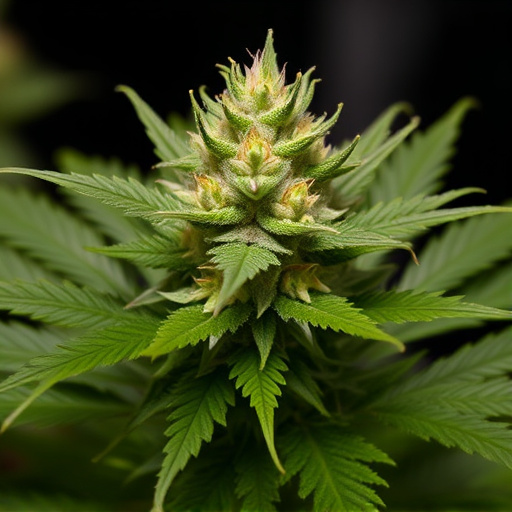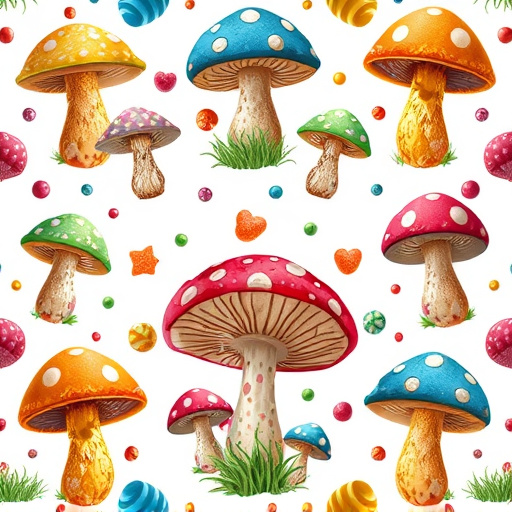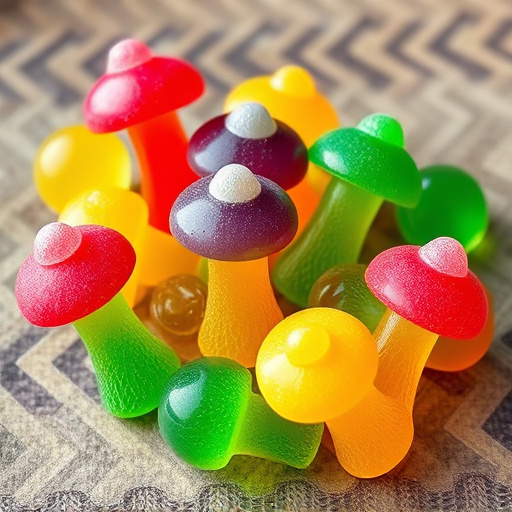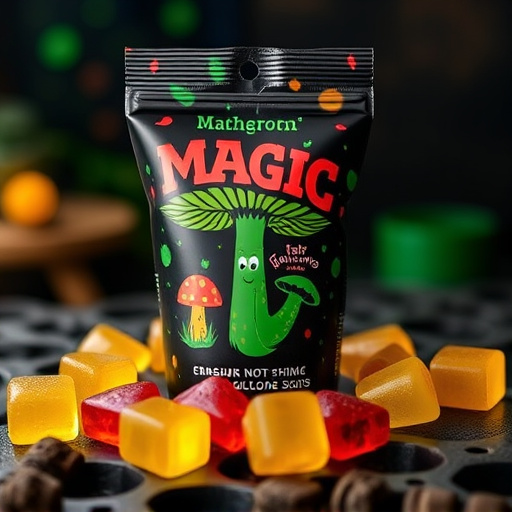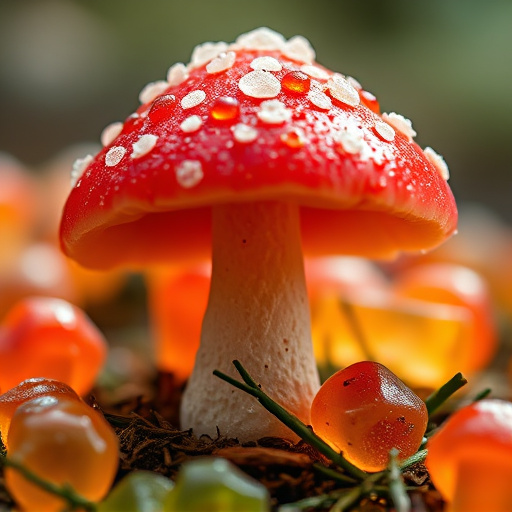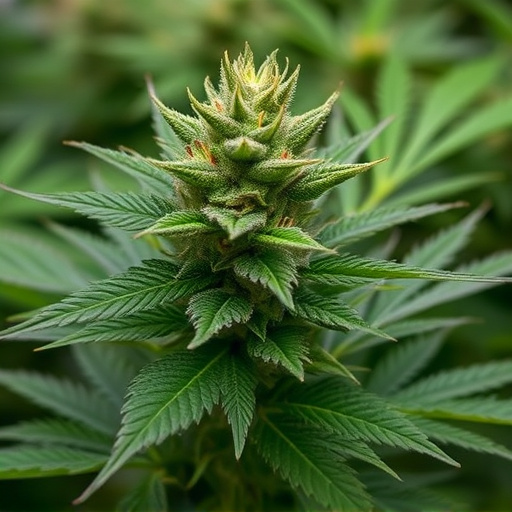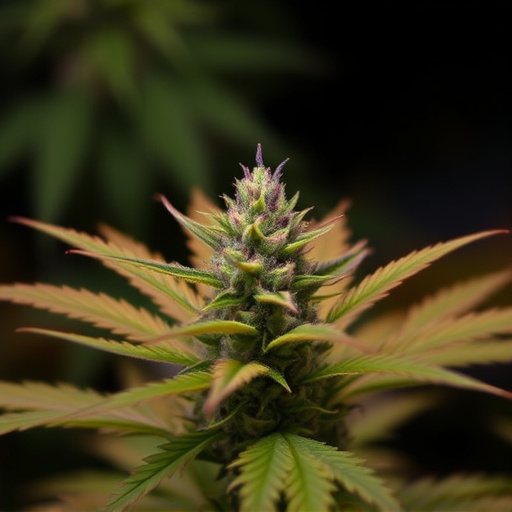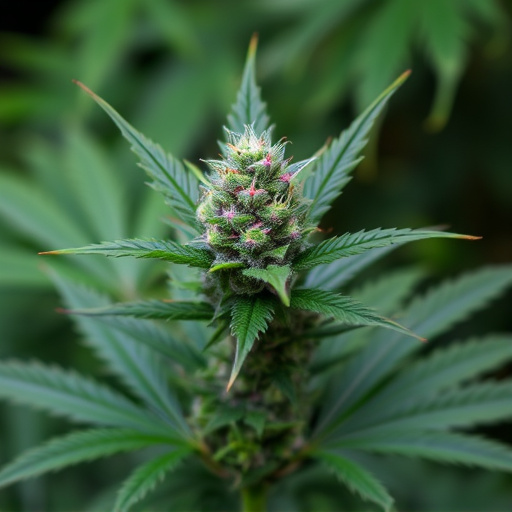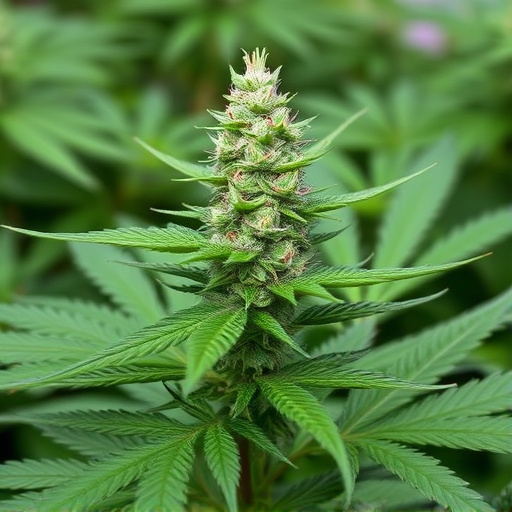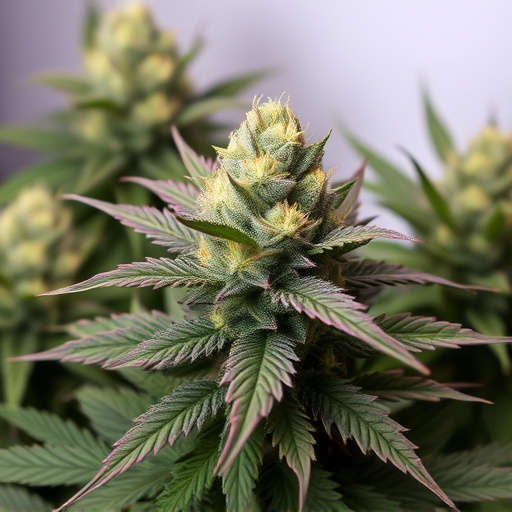Cannabis, with its natural compounds like THC and CBD, interacts with the body's endocannabinoid system to regulate mood. Strains high in non-psychoactive CBD show promise as alternative treatments for PTSD, reducing anxiety and improving sleep quality. Granddaddy Purple and Northern Lights are examples of sedating strains that may help insulate users from traumatic memories. However, the effectiveness of cannabis for PTSD requires more research. Consulting healthcare professionals is crucial for safe and effective use, including dosage guidance. Regulated cannabis products can complement traditional therapy for potential mental health benefits.
Can weed make you happier? It’s a question that sparks debate, but growing scientific interest in cannabis and mental health offers intriguing insights. This article explores the complex relationship between cannabis and mood regulation, delving into specific cannabis strains known for their potential therapeutic effects on PTSD. We’ll discuss responsible use guidelines and considerations crucial for harnessing mental health benefits while navigating this evolving landscape.
- Understanding the Link Between Cannabis and Mood Regulation
- Cannabis Strains for PTSD: A Potential Therapeutic Approach
- Responsible Use and Considerations for Mental Health Benefits
Understanding the Link Between Cannabis and Mood Regulation
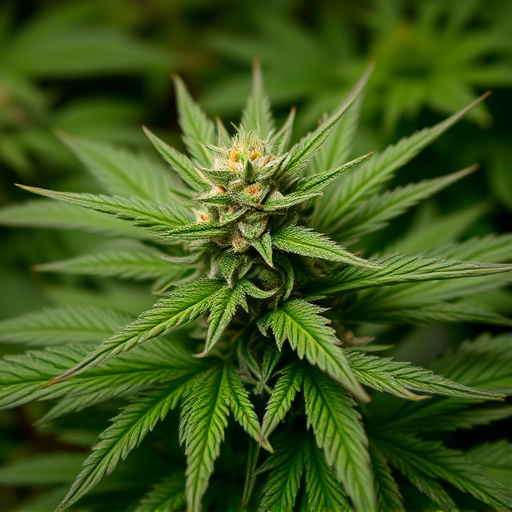
Cannabis has been used for centuries as a natural remedy, and its impact on mood regulation is an area of growing interest in modern research. The link between cannabis and happiness is complex, as it involves the interaction of various compounds within the plant, such as THC (tetrahydrocannabinol) and CBD (cannabidiol), with our body’s endocannabinoid system. This system plays a crucial role in maintaining homeostasis, including emotional balance.
For individuals dealing with conditions like PTSD (post-traumatic stress disorder), cannabis strains high in CBD have shown potential as an alternative treatment. CBD is known for its calming effects and can help reduce anxiety and improve sleep quality, which are often co-occurring symptoms of PTSD. By targeting these specific symptoms, certain cannabis strains may contribute to an individual’s overall well-being and happiness. However, it’s essential to consult with healthcare professionals to determine the most suitable approach, as personal responses to cannabis vary, and proper dosage is critical for effective and safe use.
Cannabis Strains for PTSD: A Potential Therapeutic Approach

Cannabis has been used as a potential therapeutic approach for Post-Traumatic Stress Disorder (PTSD) due to its ability to interact with the body’s endocannabinoid system. Certain cannabis strains are known for their high levels of CBD (cannabidiol), which is believed to help reduce anxiety and promote relaxation, making them promising options for PTSD treatment. Research suggests that CBD can mitigate the symptoms of PTSD by binding to receptors in the brain associated with memory and emotion, potentially lessening flashbacks and nightmares.
Some cannabis strains renowned for their potential therapeutic effects on PTSD include Indica varieties known for their sedating properties, such as Granddaddy Purple or Northern Lights. These strains may help insulate users from traumatic memories and promote better sleep. However, it’s crucial to note that the effectiveness of cannabis for PTSD is still being studied, and individual responses can vary significantly. More high-quality research is needed to fully understand its potential benefits and risks in a clinical setting.
Responsible Use and Considerations for Mental Health Benefits
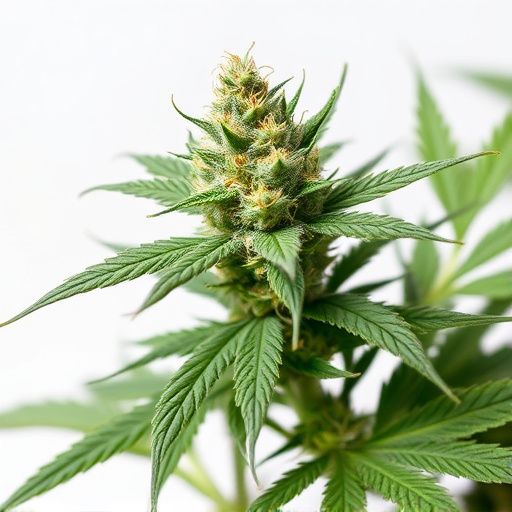
Responsible use of cannabis, especially specific cannabis strains for PTSD, can potentially offer mental health benefits. However, it’s crucial to approach this with caution and consideration. Studies have shown that certain compounds in cannabis, such as CBD (cannabidiol), may help reduce symptoms of anxiety and depression, which are often comorbid with PTSD. These compounds interact with the body’s endocannabinoid system, helping to regulate mood and stress responses.
When considering cannabis for mental health purposes, it’s essential to consult healthcare professionals. They can guide individuals towards suitable cannabis strains for their specific needs and conditions, ensuring safe and effective use. Responsible consumption includes sticking to regulated products, following dosage instructions, and monitoring personal reactions. Additionally, combining cannabis with traditional therapy or medication may provide synergistic effects, enhancing overall mental well-being.
While cannabis has been shown to potentially offer benefits for mood regulation and specific mental health conditions like PTSD, it’s crucial to approach its use responsibly. Research is still evolving, and individual experiences vary greatly. For those considering cannabis as a therapeutic option, especially for PTSD, consulting with healthcare professionals is essential to determine the best course of action based on personal needs and potential risks. Responsible use involves understanding dosage, strain selection, and seeking guidance from experts to ensure safety and maximize benefits.
